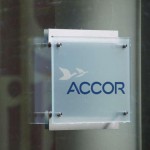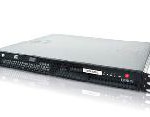Technology and Training Key to Progress from the Partnership for Lebanon
Following the announcement of a collaborative effort with other corporations to help revitalize Lebanon, Intel Chairman Craig Barrett today dedicated new projects to improve education, healthcare and computer access to the Internet for its citizens.
Barrett’s trip is the latest on behalf of the Partnership for Lebanon. Through the group, Intel Corporation, Cisco Systems, GHAFARI Inc., Microsoft and Occidental Petroleum are providing critically needed resources to bring long term economic growth and stability to the country.
„It’s gratifying to see concrete results at advancing the economic and social foundations of Lebanon thorough Intel’s work with the US and Lebanese private sectors,“ said Barrett during a day filled with tours, unveilings and initiatives. They include:
- Intel is installing state-of-the-art wireless networks to accelerate the use of technology and high-speed computer connections to access the vast knowledge resources of the Internet. WiMAX systems are getting deployed at two hospitals, one school and two community centers in Burj Al Barajneh, Nabatiyeh, and Beirut. The longer-range wireless technology is considered a more efficient way to bring connectivity to rugged and remote areas less suited for installing cable or phone wires.
- Intel is donating more than 100 high-performance computers, known as servers, to university engineering labs and science departments across Lebanon. The Ministry of Education will select eight universities to receive the computers. Microsoft and a local technology company, Triple C, are providing software, support and installation services.
- Barrett announced that five-thousand teachers will be trained by the end of this year on ways to use technology to enhance student learning. It’s part of the global Intel® Teach Program. He also joined in the celebration of the 500th teacher to complete the program in Lebanon.
- In Burj Al Barajneh, Intel installed a high-speed Internet link for a junior high school, built a computer lab and donated 25 specially-designed, fully functional notebook computers known as Intel® classmate PCs. Teachers are also getting trained on ways to best use the classmate PCs for educating their students.
- To keep the computers running and provide job skills too, Intel is working with Mercy Corp Youth Training to teach youngsters how to service the classmate PCs.
- In Abey, Barrett revisited the Druze Orphanage where two computer labs for students were built by Intel employees on sabbatical using funds contributed by other employees and the company.
- Intel is seeding another project to encourage community access to computers by providing more than 180 PCs for community centers across the country. Intel is buying the computers from local companies as a model way to spur economic growth.
- Intel Capital is investing $500,000 in an innovative technology incubator in Lebanon. The Berytech Fund aims to finance start-ups or invest in as many as ten technology companies in emerging regions.
- In another effort to spark future commercial growth, two university students are on their way to the US to learn the basics of starting a business so they can bring that knowledge back to their country. They are the first from Lebanon to enroll in the Intel® Entrepreneurship Program, which was jointly developed by Intel and the Haas School of Business at the University of California, Berkeley.
- Across Lebanon, Intel will also hold forums with local industry leaders on the best ways to create and sustain economic growth.
„Access to education and technology increases the opportunities for the people of Lebanon,“ said Barrett.
At a stop in Beirut, Barrett announced Intel is also increasing technical and doctor training support for a Telemedicine Program at one of Lebanon’s top hospitals, American University of Beirut Medical Center (AUBMC) and the Nabatiyeh Governmental Hospital in Nabatiyeh. The Telemedicine systems provide the hospitals with real-time video consultation between physicians kilometers apart, the ability to share data and to diagnose patients from afar.
Without Telemedicine, Nabatiyeh citizens needing a specialist would have to travel to Beirut, a trip that can be long and arduous.
„The Nabatiyeh-Beirut Telemedicine Program could not come at a better time,“ said Dr. Nadim Cortas, Vice President for Medical Affairs and Dean of the faculty of medicine and the American University of Beirut Medical Center. „Since last summer, there has been an increase in eye and skin problems due mainly to crowding, particularly among the residents of South Lebanon. Now we can bring medical expertise to more people, and faster than before.“
The innovation gives local doctors the ability to access the latest medical data and get second opinions from specialists and medical centers hundreds of kilometers away.
Since the start of the program in 2006, the Partnership for Lebanon has supplied critical resources for reconstruction efforts. The group is focused on job creation, workforce training and education, rebuilding the country’s communications and computing capabilities, providing connectivity to communities and government, and responding to crisis.
Intel’s goal through these efforts, which are an extension its World Ahead Program, is not only to bring affordable PCs and Internet access to developing communities. But also to train teachers and provide the technology education needed to make a meaningful difference in people’s lives.
About Intel
Intel, the world leader in silicon innovation, develops technologies, products and initiatives to continually advance how people work and live. Additional information about Intel is available at www.intel.com/pressroom.





